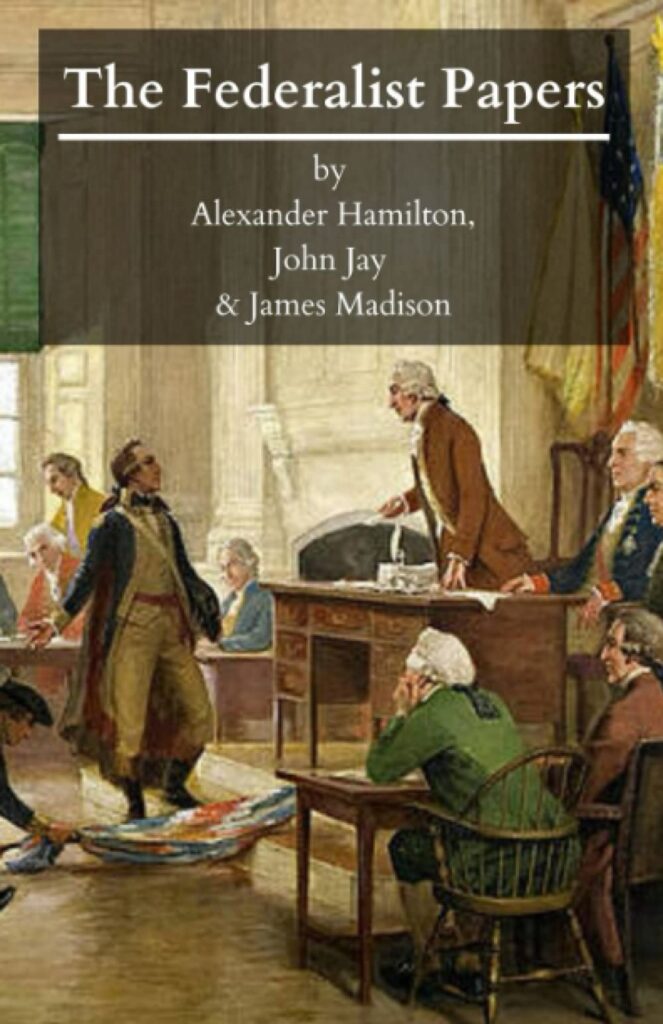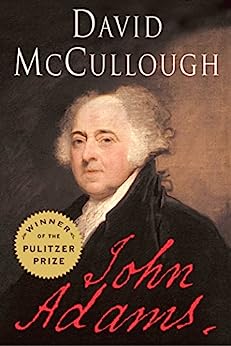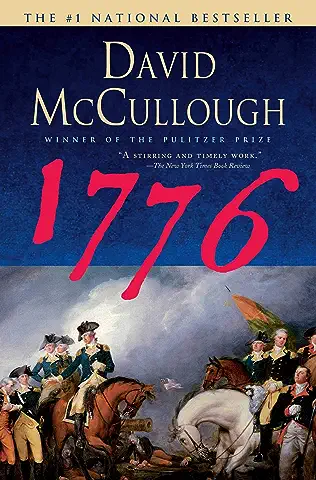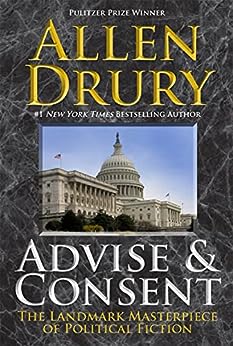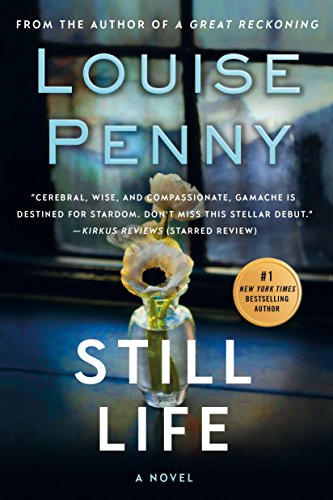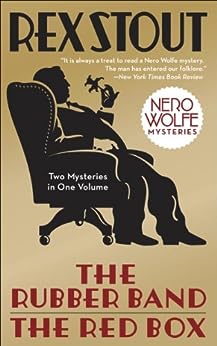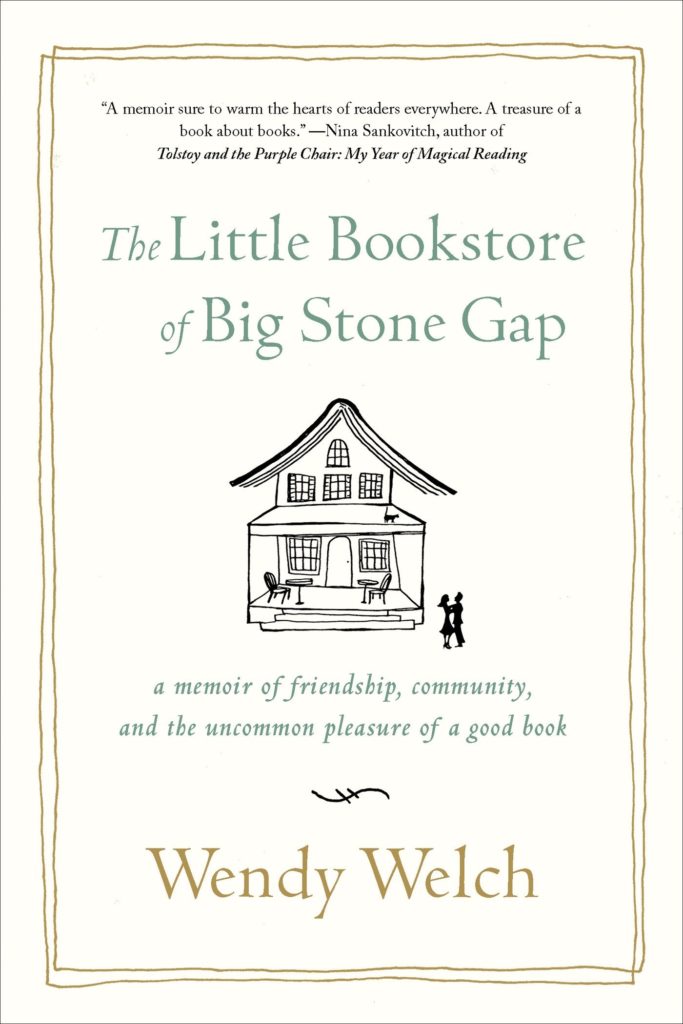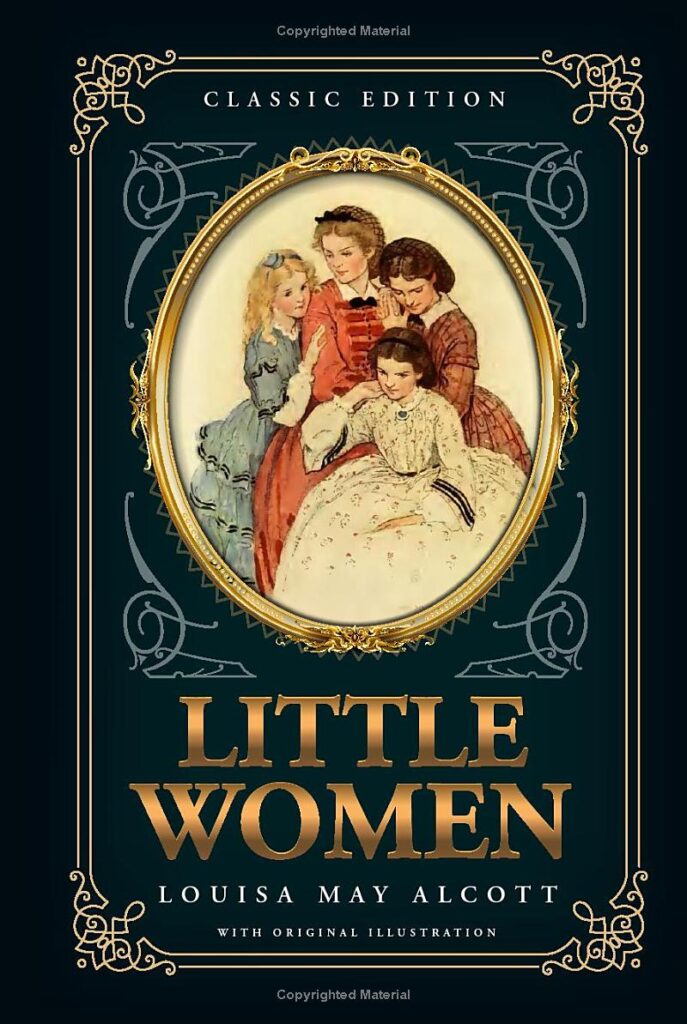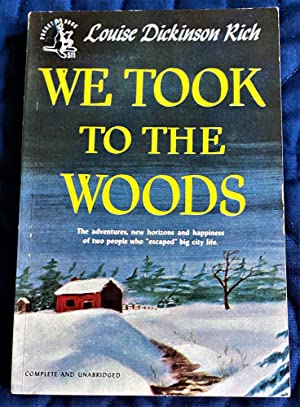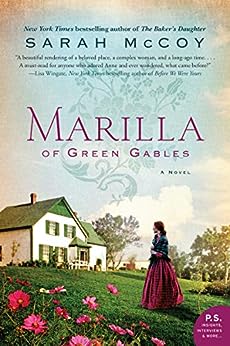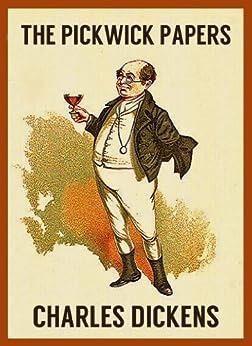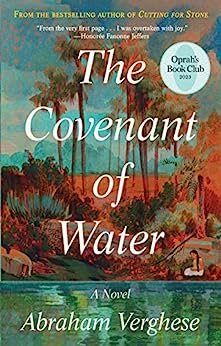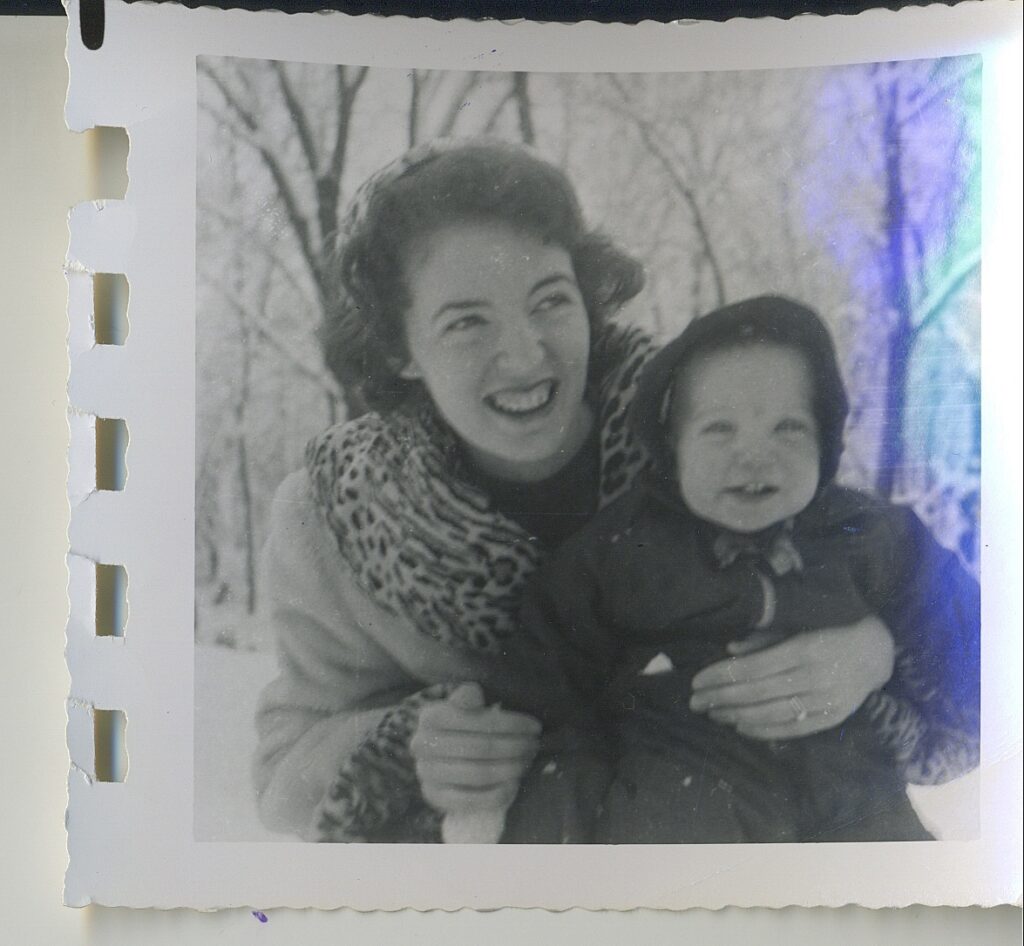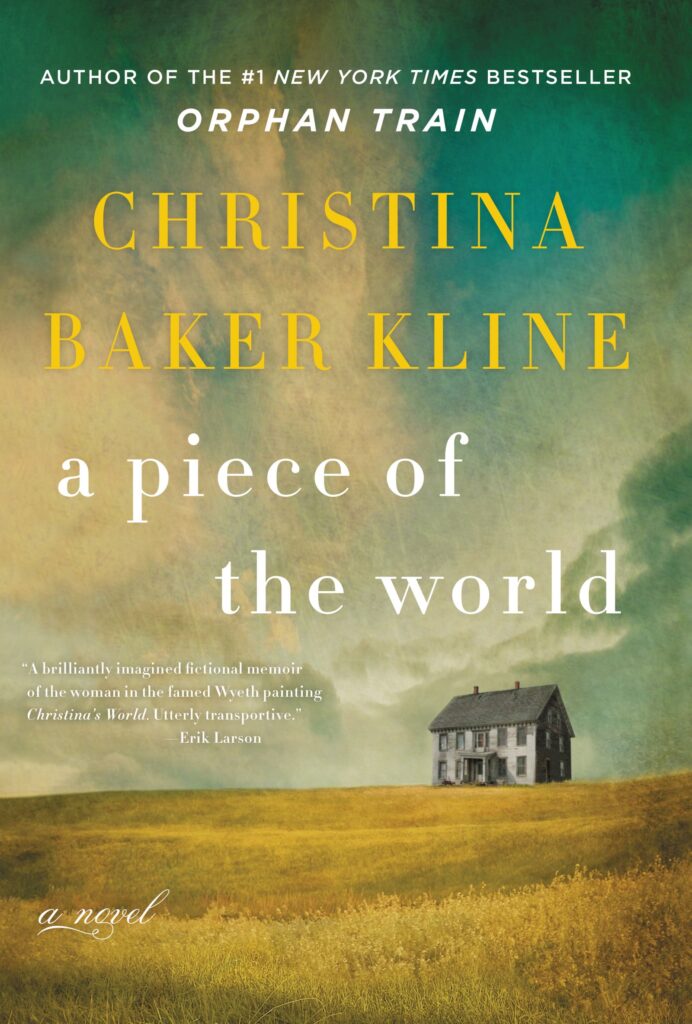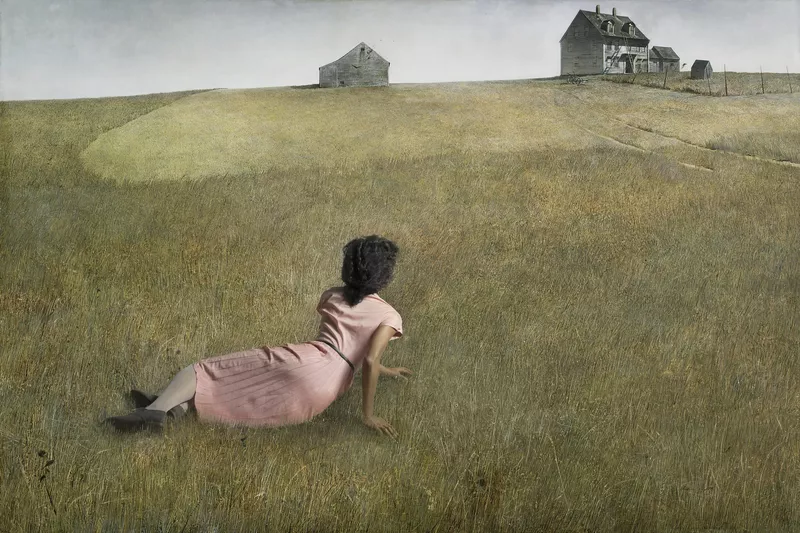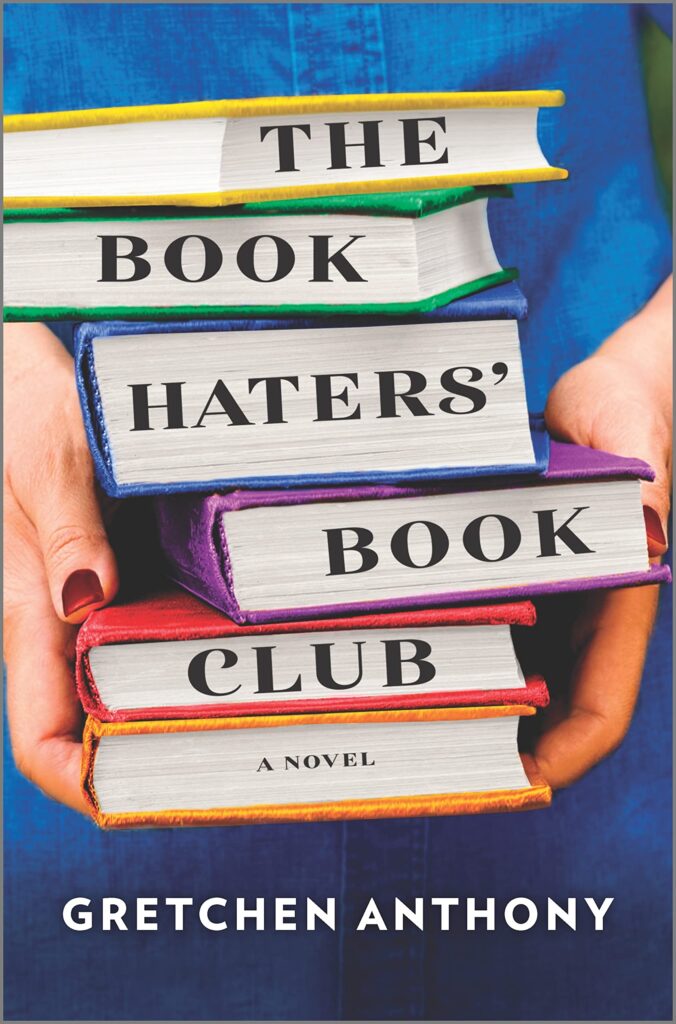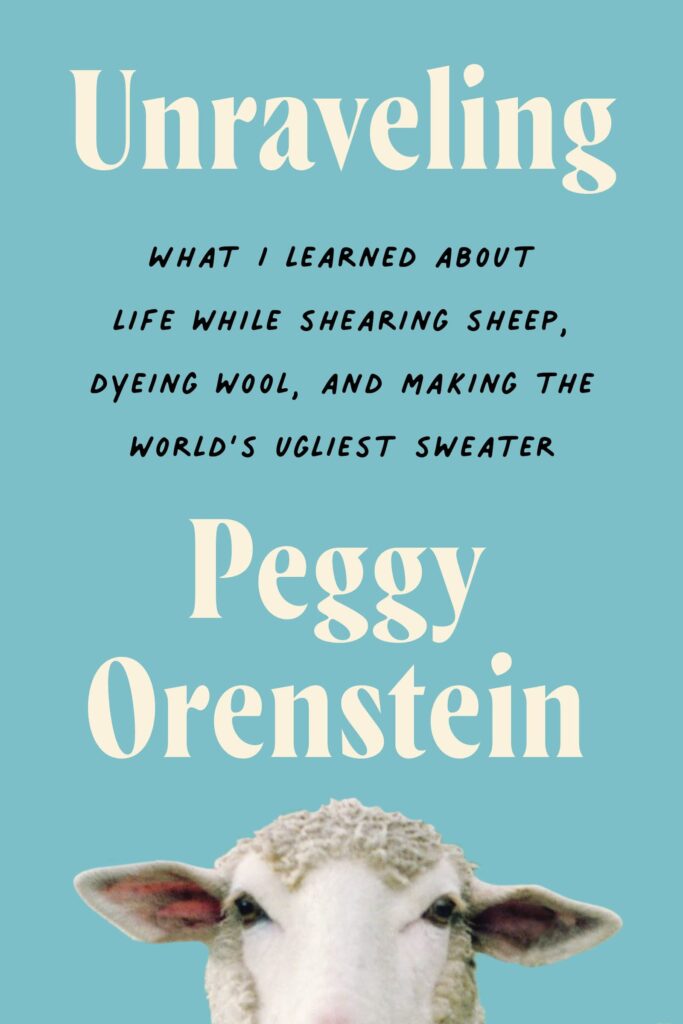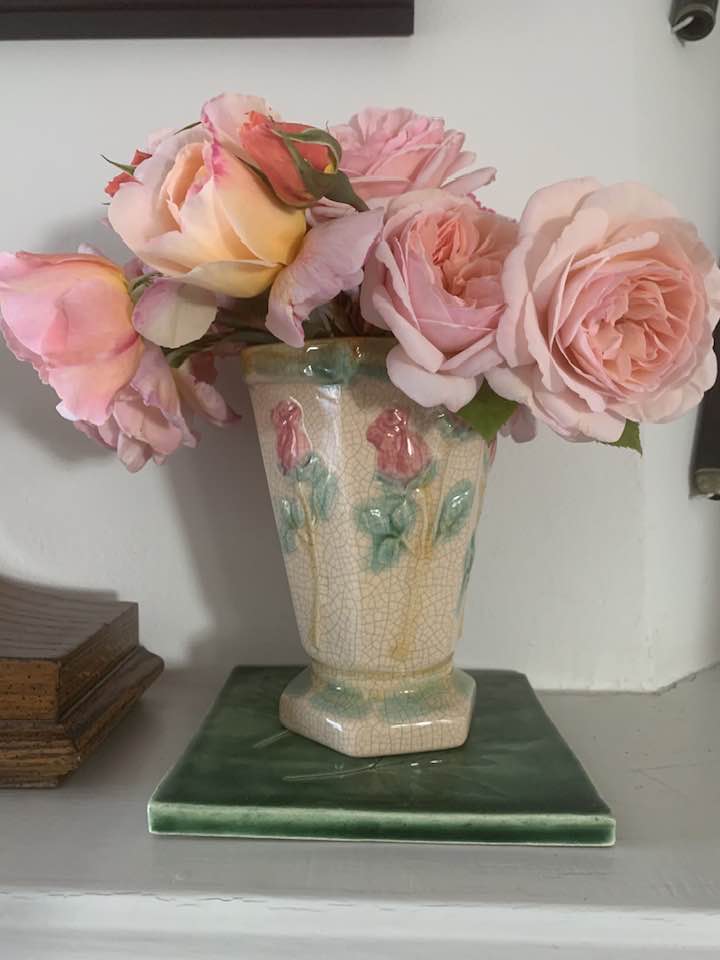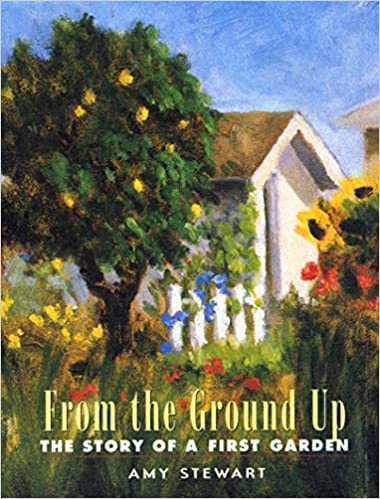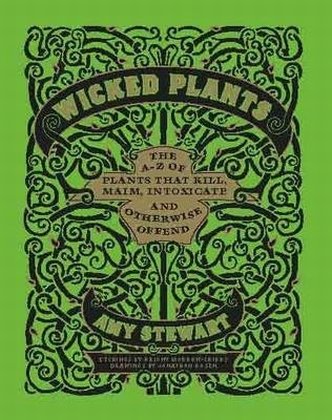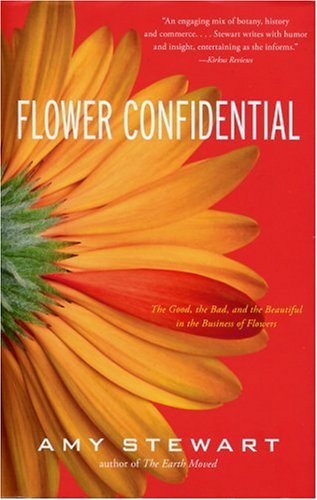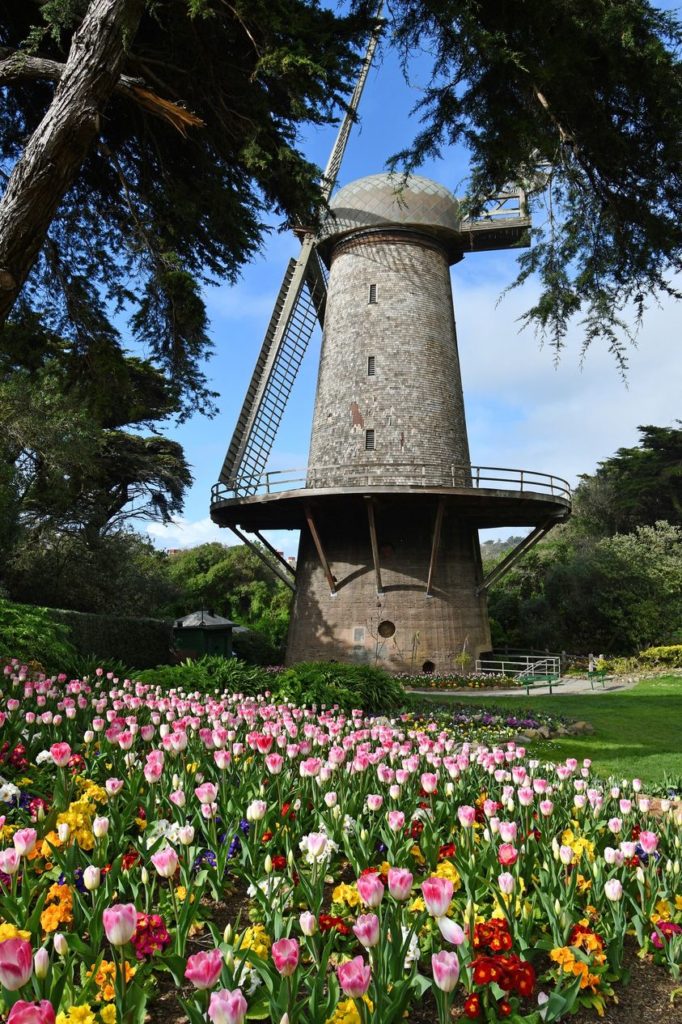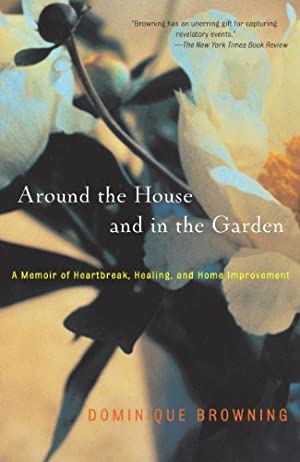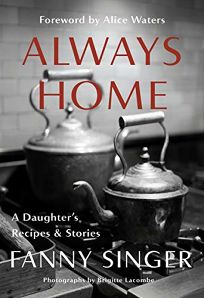Mom’s Favorite Reads
First and foremost, I knew I had some loyal and friendly followers here at Book Barmy, but I have been overwhelmed with all the lovely thoughts and tributes — such heartfelt emails and comments after my last posting. You are my tribe. Thank you.
This post has taken some time, as my mind kept wandering. When I tried to list some of my mother’s favorite books, the memories came flooding back.
We always had books, lots of books, when I was growing up. My grandfather had an extensive collection and my mom’s library was quite large for a young struggling couple with three kids. We had bookshelves in every room and one of us, if not all of us, could be found secreted in a corner reading. There were exceptions, we weren’t allowed to read at the table and, if it was a nice day, I was sent outside to play.
I remember some afternoons, Mom would sneak some time for herself, reading on the couch in the sunlight.
Mom and I had our difficulties, but we loved each other greatly — and our absolute best times were talking about books, trading books, shopping for books, and yes, quietly reading together.
So here I go with her favorite books – many of which I have never read myself.
My mom is one of the only people I’ve known who has actually read The Federalist Papers – yes read it cover to cover. I have her well-worn copy but have never attempted it myself.
Mom was fascinated by American history and that spurred her to read almost all of David McCullogh’s books. These were her two favorites if I remember… again still haven’t read.
We grew up just outside of Washington DC, so politics we also of interest but here she turned to fiction and feasted upon all of Allen Drury’s political novels.
Allen Drury was a reporter in the Senate, covering both Presidents Franklin D. Roosevelt and Harry S. Truman, among others. Mr. Drury is largely unknown and unread these days, but I may seek out this one – as she said it was her favorite – never read him either.
We we both enthralled by mysteries, but we agreed they had to be well-written and compelling.
I admit, I turned her into a Louise Penny addict which was great for both of us, because I would buy her newest installments in the Gamache mystery series on the day they were published – read them as fast as I could and then ship them out to my Mom. Enablers – you bet! If you haven’t read this well-written and very addictive series start with Still Life. You’ll get hooked too.
Rex Stout’s Nero Wolf series was another pleasure, and it’s been years since I’ve read one…but I remember they were very clever and the characters were sharp with great dialogue.
We shared a fondness for books about bookstores and The Little Bookstore of Big Stone Gap was one of our favorites.
Mom introduced me to Little Women when I was 8 or 9 (I think) and she let me keep her copy in my bedroom so I could read and re-read it late at night. We recently laughed and bemoaned all the film versions that have been made and questioned how could they possibly make another.
Then we also wryly admitted that we had both watched each one when they came on television.
We moved from DC up to New Hampshire when I was in my teens. During one snow day, attracted by the jacket cover inviting me down a snowy path to a snug home in the pines, I picked up my mother’s copy of We Took to The Woods and happily wiled away the afternoon. She told me she picked up this copy in a used bookstore right after we moved, so she could ‘get a feel’ for life in New England. It turned out to be one of her favorite books. More about this book HERE.
Side note — when I first posted about this book, and told how I found my own copy but it lacked this great cover, a Book Barmy follower and friend tracked down a copy for me — with that exact cover! Book lovers are the best.
Mom delighted in the Anne of Green Gables series of books and I found her this spin off for her birthday one year. A re-imagining of Anne’s adoptive mother Marilla. Mom called me a week later having read it almost non-stop, and said it was wonderful, and she laughed and cried. I scored with that one.
Mom was a keen Dickens fan and has read them all. Her favorite by far was The Pickwick Papers. I made the mistake of making my first venture into Dickens with David Copperfield which gave me great trouble. Mom urged me to read Pickwick to restore my interest in Dickens – she was right a much better book.
This a mere fraction of the books she read in her lifetime, but I’ll stop here, as I have got to get back into reading myself.
My brain hasn’t been in that space, but writing this post about our shared ‘reading thing’ has reminded me how much I miss getting lost in a book.
I’m currently attempting this ~~ but have gotten bogged down – I know this is going to be a great read, but at I wonder if I have the persistence?
Life maybe too short for 700+ page tomes. So many other books to read.
I’ll let you know.
I found this snapshot going through some old photos.
I am the baby…my mom is the real ‘babe’.
Abandoned Reading
Humble apologies to my Book Barmy followers for the lack of content here. Sadly, I’m in a reading slump, a reading desert if you will, with several recent books cast aside in disappointment.
I know this is natural and happens to every reader, but oh how I miss being lost in a good — nay, a great book. Without such diversion, my evenings are not spent in my lovely reading nook, with said good/great book — but instead re-watching episodes of West Wing.
I had such high hopes for this novel, inspired by Andrew Wyeth’s painting Christina’s World and told from the point of view of the woman herself. Christina seemed destined for a small life. Instead, for more than twenty years, she was host and inspiration for the artist Andrew Wyeth, and became the subject of one of the best known American paintings of the twentieth century.
I actually got well into A Piece of the World and was quite enjoying it, so much so, I sent a friend a copy to read during her up-teenth snowstorm.
But, alas, after a great start, the novel became belabored with the focus on Christina’s disability and struggles quite dreary. So, I put it down. Perhaps another day, I’ll try it again.
The Book Hater’s Book Club was sent to me by the publisher for review. A blog aptly named Book Barmy tends to attract such books, for which I am grateful. The book’s blurb “All it takes is the right book to turn a Book Hater into a Book Lover” had me intrigued.
I usually enjoy books about book stores and the very interesting people that run them. So knowing this would be a lighter read, I tried it.
Elliott, co-owner of Minneapolis’ Over the Rainbow bookshop, has recently passed away, leaving the other co-owner, Irma, in trouble. Business is failing and the bills are piling up. Irma is also grieving the death of her longtime boyfriend.
Irma calls a meeting with her two daughters, Bree and Laney, and Elliott’s partner, Thom, at the lawyer’s office. She has decided to sell to a developer who plans to raze it and replace it with high-rise condominiums. Hmm I thought, okay, just give it another few chapters…
I tried folks, I really tried, but the characters were a bit too simplistic and plot very predictable from the outset. Another book tossed aside. Sorry Park Row publishing.
I picked this up at my local library from the new arrivals shelf. (I have a special weakness for library new arrivals or librarian recommendation shelves.)
It sounded fun, a memoir about how Ms. Orenstein got through the pandemic by shearing a sheep, carding the wool from said sheep, spinning it into yarn and then making a sweater. I’ve never really been interested in spinning, but am a knitter, so I thought this will cure my reading slump – something completely different…and, as it turns out, completely BORING.
My eyes crossed at the detail; every little step of finding someplace that would teach her to shear a sheep, the minutiae of that practice, the endless discussion of choosing dyes for her wool, and the struggle to learn to knit. I know everyone needed something to do during the lock down time, and I’m happy Ms. Orenstein found her own coping mechanism. I just wish she had made it more fun and entertaining. But as Unraveled is written – it just felt like a forced march.
One thing is for certain – as the book cover proclaims — she did produce a very ugly sweater.
So here I am, aimlessly searching my bookshelves and Kindle for something to read – I need something to read. Perhaps I’ll just let it go and not put pressure on myself.
As a distraction, our record setting rainfall this winter has resulted in some of my best rose blooms ever.
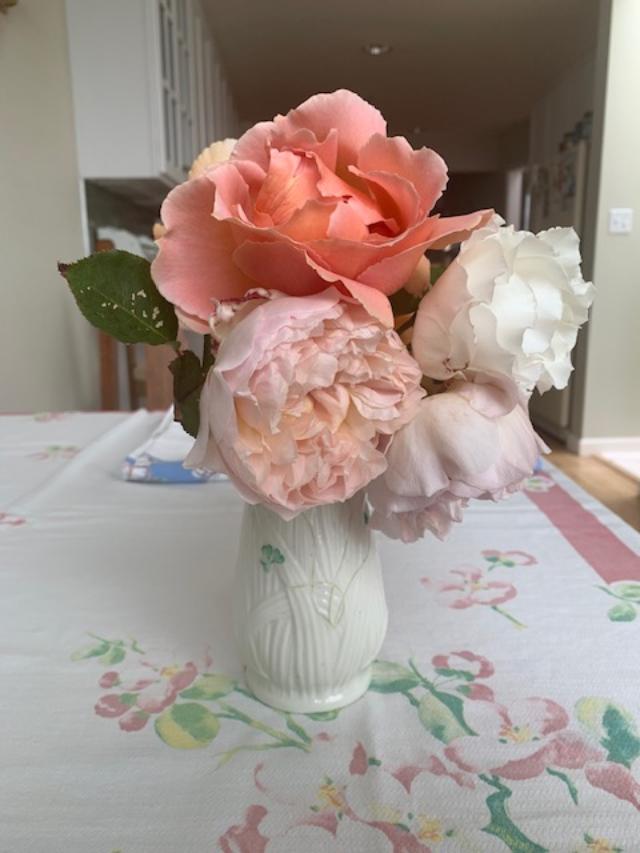
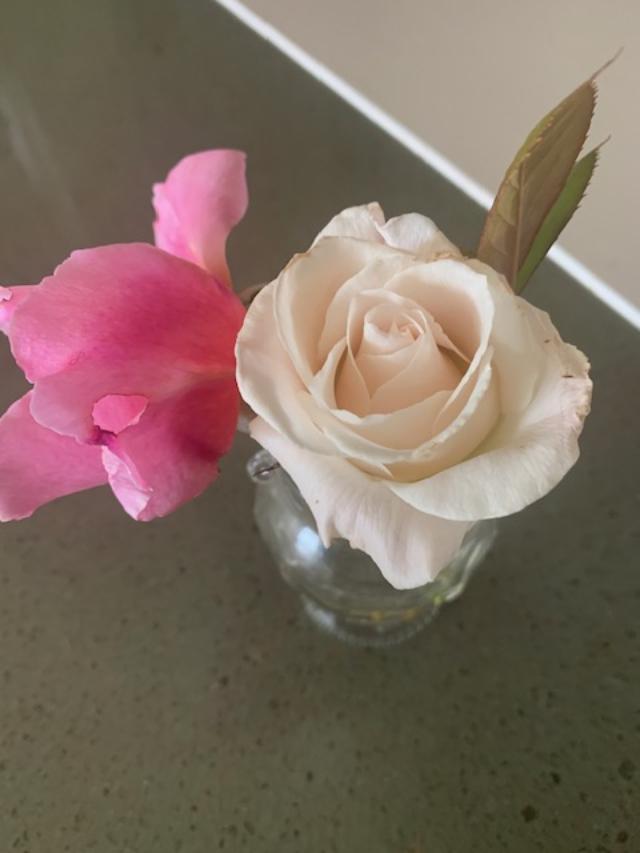
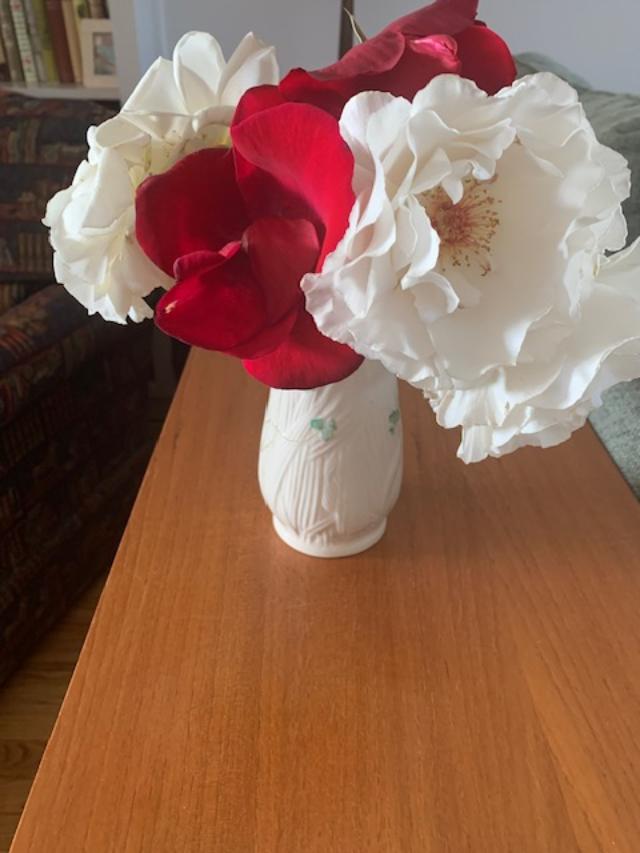
So, I’m off to the garden – there are always aphids to spray with soapy water and dead-heading. Yes, that’s what I’ll do.
And “West Wing”, in case you’ve forgotten, was a great show, and I’m really enjoying re-watching the series one episode an evening – from the beginning.
From the Ground Up by Amy Stewart
With apologies to those in colder climes, spring has come to our little garden. The daffodils are up and earlier this year, we let our seven year old friend plant our bulbs wherever he wanted. The result is a lovely madness of blooms. Bunched together in some spots and varieties mixed together willy-nilly. Makes me smile with delight.*


So there I was cutting these daffs to take indoors when my thoughts turned to our garden at large. So much to do after the rains – oh the weeds – the weeds. Luckily, our seven year old child laborer gardener is also keen to help weed. No matter if he pulls up the wrong thing – odds are in our favor that he does indeed pull mostly weeds.
The other evening, my thoughts turning to more gardening, I turned to my collection of gardening books and pulled out an old favorite. Not an instructional garden book, but a memoir of a first garden.
From the Ground Up by Amy Stewart
I read this first when it came out in 2001 — during those dark days after 9/11 and I needed simple distraction. I just re-read it again and was once again surprised by how much I enjoyed this little gardening book.
From the book’s flyleaf:
Amy Stewart had a simple dream. She yearned for a garden filled with colorful jumbles of vegetables and flowers. After she and her husband finished graduate school, they pulled up their Texas roots and headed west to Santa Cruz, California. With little money in their pockets, they rented a modest seaside bungalow with a small backyard. It wasn’t much—a twelve-hundred-square-foot patch of land with a couple of fruit trees, and a lot of dirt. A good place to start.
From the Ground Up is Stewart’s quirky, humorous chronicle of the blossoms and weeds in her first garden and the lessons she’s learned the hard way. From planting seeds her great-grandmother sends to battling snails, gophers, and aphids, Stewart takes us on a tour of four seasons in her coastal garden. Confessing her sins and delighting in small triumphs, she dishes the dirt for both the novice and the experienced gardener. Along the way, she brings her quintessential California beach town to life—complete with harbor seals, monarch butterfly migrations, and an old-fashioned seaside amusement park just down the street.
This garden memoir is set just down the coast from us in Santa Cruz and I can relate to the coastal garden trials and tribulations. Furthermore, Ms. Stewart captures the mindset of the amateur gardener with all its joys, mysteries and disappointments. And I’ve made all the mistakes and I’ve had the joy and disappointment. From the Ground Up is interwoven with some viable garden tips — but it’s more than just a gardening book – it’s a book about life. Just read this excerpt:
But gardening is none of that, really. Strip away the gadgets and the techniques, the books and the magazines and the soil test kits, and what you’re left with, at the end of the day, is this: a stretch of freshly turned dirt, a handful of seeds scratched into the surface, and a marker to remember where they went. It is at the same time an incredibly brave and an incredibly simple thing to do, entrusting your seeds to the earth and waiting for them to rise up out of the ground to meet you.
If you have the gardening bug or you know someone who does. Whether you are into one specific species of plant or an eclectic gardener (we definitely fall into the latter category) — or even if you’d rather garden from your comfy chair – From the Ground Up is a delightful story of a new gardener, her first garden, and how she and her garden grew and changed.
Ms. Stewart is also know for several other garden books which are very well regarded.
One about the history of poisonous plants and their victims.
And another about the flower industry
Both look very interesting for someday.
But for now, From the Ground Up will go back to its place on my shelves for yet another re-read.
* Out here we have to plant new bulbs every year because in our temperate climate and without frost — very few bulbs re-bloom.
Lest you think we are the only ones with bulbs planted in wild abandon – check out the tulip garden in Golden Gate Park…also makes me happy. I wonder if they have their own child gardening helpers?
Around the House and Garden by Dominique Browning
Back in my advertising days, I was lucky enough to be part of the magazine publishing industry – only peripherally, but still a wonderful perk. In that time, printed magazines were a honorable part of advertising media, with wonderful (and sometimes not so wonderful) full page advertisements. Another benefit of advertising in magazines, was the complimentary subscriptions we received. One of my favorites was House and Garden magazine.
House & Garden editor-in-chief, Dominique Browning, wrote a monthly column for the magazine and this lovely book brings together those columns. They cover personal stories and essays about home decorating, gardening, and raising children with universal themes of domestic life.
In Around the House and in the Garden, Browning adapts and expands these well-loved pieces, adding dozens of new essays, to create an insightful and moving narrative about the solace and sense of self that can be found through tending one’s home.
From the book blurb:
Around the House and Garden is a book for anyone who has ever felt the need to reinvent a life or a space, who has ever fallen in love with the idea of home – the place where we reinvent ourselves.
I’ve had this book for years and never got all the way through it. A while ago, I re-started it and left it next to my bed to read a chapter a night — they are each distinct, none are more than four pages, and easy to digest independently. And while I thought I would read one essay before sleep, in the end, I found myself reading the last half the book in one sitting.
Ms. Browning weaves in many reflections on her life in her two homes. The houses come to symbolize the state of her heart and mind. Some are sad, as she tries to bounce back from a divorce, yet it’s also a wonderfully uplifting book. I loved reading about her journey of healing while remaking her home and her reflections on gardens, decorating, and cultivating the comforts of a home.
It especially speaks to anyone starting over in their lives after a divorce, but could be just as useful to anyone attempting to create some kind of spiritual retreat in which to nurture their bodies and souls.
When I was reading this beautifully written book, I imagined myself sitting in a cozy living room having a cup of tea and a long talk with a lovely, yet vulnerable Ms. Browning — only after we had taken a long stroll through her gardens.
This book is Book Barmy prescribed for these long winter nights when you need calming, gentle, diversionary material to lull you to sleep while trying not to think obsessively about something that can wait until tomorrow.
Taste by Stanley Tucci
With some pride, I admit I make a mean spaghetti sauce – a recipe handed down from my maternal great-grandmother who got the original from a newly immigrated Italian family – or so the story goes. Anyway it is Husband’s favorite meal and I make it on his birthday with plenty of extra sauce to freeze for during the following months.
This year, I deviated for Husband’s birthday. Why you may ask? Well I had just started Stanley Tucci’s memoir Taste and the way he describes his families’ ragu made my mouth water. The book contained the recipe (among others) and I followed it to the letter. It was very, very good, – a little simpler, a bit lighter, and fresher. It won’t replace my mother’s/great grandmother’s version, but it was in one of the first few chapters –and I just had to try it.
But lets get to the book shall we? Taste falls into the genre of narrative cookbooks, but this is more of a memoir of meals and should come with the following advisory:
Warning. Reading this book may cause unexpected weight gain.
Stanley Tucci recently had a CNN series touring Italy and …eating … and eating. As I watched the series, I remember how much I like Stanley Tucci – he is funny, smart, and good looking. I loved him in ‘The Devil wears Prada,’ and ‘Julie and Julia. But reading this book, I was also reminded of his film from 20+ years ago ‘The Big Night’ which showcases his love of cooking and food.
Taste is Mr. Tucci’s own story about the importance of food and family. His upbringing and relationship to food throughout his life. A funny and wry writer who leads you through his life, career, the ups and downs, interlaced with frequent recipes, memorable meals and food experiences.
With charm and wit, he shares personal anecdotes to show how food influenced his life and how food connects him to his family and Italian heritage. He also shares his health battles and a very relatable (we were all there) section on how his family handled the pandemic.
Reading Mr. Tucci, I was in the presence of a foodie of the best sort. One who makes sure you are comfortable, with a drink in your hand, and takes undisguised joy in preparing a wonderful meal for loved ones to enjoy around a warm and welcoming table. But it’s not just the cooking and preparing of food. Taste shares Mr. Tucci’s love of good ingredients and our relationship to those ingredients is of great importance.
To me, eating well is not just about what tastes good but about the connections that are made through the food itself. I am hardly saying anything new by stating that our links to what we eat have practically disappeared beneath sheets of plastic wrap. But what are also disappearing are the wonderful, vital human connections we’re able to make when we buy something we love to eat from someone who loves to sell it, who bought it from someone who loves to grow, catch, or raise it. Whether we know it or not, great comfort is found in these relationships, and they are very much a part of what solidifies a community.
While I found Taste a little jumpy and in need of some editing, it was really enjoyable. There are many fun vignettes and the food descriptions are absolutely wonderful — see advisory above. He describes his mother’s wonderful cooking, praises restaurants where he had fantastic meals (sadly many now closed), and goes on (and on — where was his editor?) about food that made a lasting impression on him. His description of the best spaghetti carbonara he’s ever had will have you salivating. And if you’re still using grocery store parmesan in the green can, Taste will have you contemplating saving your pennies dollars for some real Parmigiano Reggiano.
Mr. Tucci is a Hollywood star with famous friends and he does do some name dropping which he endearingly fesses up to right at the beginning. He is also able to frequent the best butchers, greengrocers, and specialty food shops in London where he now lives. Mr. Tucci’s pleas to find the best ingredients may be hard to swallow (pun definitely intended) for some more moderate food budgets. But try to overlook those and enjoy the read.
Taste is a delightful romp through Stanley Tucci’s life, table and career.
HERE is the Tucci Ragu Recipe – well worth making.
Warning: Taste contains profanity, and if you’re squeamish, there is a home slaughter of a goat.
Always Home by Fanny Singer
A fellow foodie friend loaned me his signed copy of this book — calling it the perfect escapist read during the pandemic. Given the title, I had to laugh and agree.
I just finished Always Home, having dipped in and out of it for many months now.
But first a little background; Fanny Singer is the daughter of Alice Waters, one of our most beloved chefs and founder of the famous Chez Panisse restaurant.
Alice was an early advocate of sourcing only the best local ingredients and is also known for her edible schoolyard program in Berkeley. And, although I am now weary of Alice and her endless publicity, I was fascinated to read this lovely memoir by her daughter, Fanny, who grew up in the glow of this revered chef.
Husband and I have been fortunate to have dined at Chez Panisse (and the more casual upstairs Fanny Cafe) and Always Home brings Fanny, her family, and behind the scenes of the restaurant to life. Turns out, Fanny was partially raised in the restaurant kitchens, surrounded by attentive chefs and prep cooks. Hers was a life full of love and really, really yummy food. Even Fanny’s lunchboxes were meticulously curated by her culinary-obsessed mother:
My lunches were not broken into courses as much as they were divided into multiple parts. There was a largish container that held a salad, a medium container for garlic bread (levain toast rubbed with olive oil and garlic), another for a season fruit compote or macédoine, a very small jar with a vinaigrette because, of course, we were both aware of the perils of prematurely dressing the salad.
Of course, I was intrigued by the recipes throughout the book and made notes to copy such delights as authentic French Citron pressé, various simple salad dressings, real Aioli, and Franny’s roast chicken which requires such high oven heat, that it comes with a warning to disable your smoke detectors.
I found Alice Waters’s quirks weirdly fascinating–her tendency to drink from bowls rather than mugs and to “jettison her silverware and delve in with her fingers,” expressing “a primal impulse to be closer to the thing she was eating, to be more sensuously acquainted.” Alice is dogmatic about sourcing only organic, locally-sourced ingredients and it’s revealed as what it actually is – an life-long obsession — which is termed “Chez shopping”.
But mostly I was drawn into the beauty of this life — how even the simplest meal could be made special, the focus on the fresh ingredients, and even the endless curation of flower arrangements everywhere:
Flowers were for my mom not just a confection to be enjoyed at the restaurant, but a part of what made any room complete. Billowing leafy branches and a few stems of some decidedly un-showy flower seem to be permanently installed in a large green urn in the far corner of the kitchen.
Fanny’s childhood trips to France are some of the best parts of Always Home — how their French friends sought beat up Brocantes (antiques) to restore, the overgrown but abundant garden, and evening meals outside under heavily scented rose bushes.
At the same time, this was (and is) a privileged life of wealth — surrounded by renowned cooks, celebrated artists, the access to abundant food resources, and the Berkeley bohemian culture. There is no shortage of name dropping, and a wee bit of trying-too-hard-overwriting. But, in the end, Fanny’s love and admiration for her mother emanates from every page:
There is a quality of ‘homecoming’ that transcend location, and not just because I reach deep into my repertoire of my mother’s recipes to animate her table through mine, but also she is somehow present even when she is not.
Always Home is charming, funny, full of love and really, really (did I say really?) good food. And, hey, any book that helps make a home special for those we love, and perhaps even ourselves, is beyond value these days.
But let’s turn to one of my favorite foodie writers Ruth Reichl — here is her review of Always Home
You will probably pick up this book because you’re curious about how it feels to grow up with Alice Waters as your mother. But you will inevitably be captivated by Fanny Singer’s sensuous voice and sensible soul. The writing’s lovely, but more than that, Fanny has struck a kind of brutal honesty that is extremely rare and completely beautiful. Her writing makes you want to taste every flavor she describes, and soon you’ll be dashing into the kitchen to make watercress soup, wild fennel cakes, and breakfast pudding. But the really important thing is that I’m pretty sure everyone who reads it will come away with the same feeling that I have: Why don’t I live my life like this? How can I do better? I love this book.”
A side note, this is quite an expensive book, however it feels nicely substantial in one’s hands, it’s printed on heavy paper, and contains many beautifully produced photographs. And the best — it’s bound so it will stay open for the recipes. Such a pleasure to have a book printed with that sort of craft and thought.



